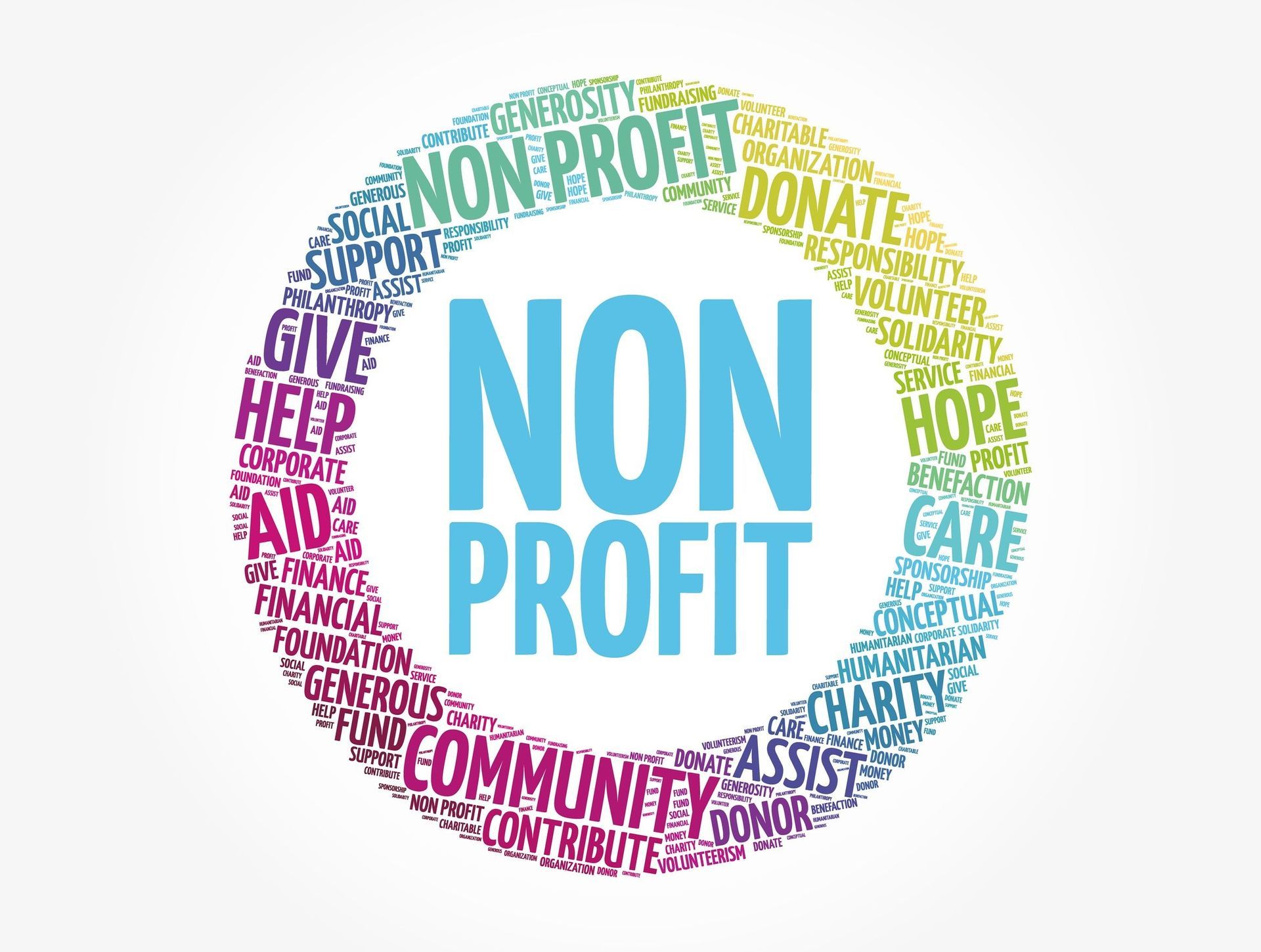Making the Transition from Corporate to Not-For-Profit in Hong Kong

Making the Transition from Corporate to Not-For-Profit in Hong Kong
Our social purpose at ConnectedGroup has led us to speak with many individuals in the ‘third sector’ covering semi-government funded institutions, societies, professional bodies, charities and social enterprises. These conversations and insights from both employers and jobseekers alike have informed our opinion on how to best make the transition from a corporate career into one with a more deeply defined social impact. It’s a question we are asked on a regular basis, so we wanted to put our thoughts in writing.
In this article we look at the considerations, misconceptions, and available resources to enable someone considering this move to make the most informed choices. Whilst our commentary is specific to the Hong Kong market, many of the elements are transferrable.
Your 'Why?'
The first factor to determine is, what is driving you to make this decision? We have been approached by candidates who identify issues such as ‘I want more work/life balance’, or ‘I want to work with less politics and/or bureaucracy’. We gently steer these candidates away from a sector where resources tend to be short, missions become all-consuming, and complex stakeholder management is standard.
Instead, it is best to start with what causes you are passionate about and then identify where your skills and experience will have the greatest impact. From here you should go in ‘eyes open’, understanding that you will work hard, often with limited budgets and supporting headcount, but that the impact in your chosen area will offer the reward and sense of purpose that the corporate sector can fail to supply.
Different causes will require different skills in varying contexts and so, asking yourself as to whether you want to work with children, the elderly, animals, the environment, on housing issues, healthcare, education etc. will be a good foundation from which to explore your options.
The Financial Compromise
Once you have defined your drivers, you will need to understand the financial reality of working in this sector. There is a reason why there are higher numbers of early career contributors who migrate to corporate after a few years and later career transitioners who come back the other way. Unfortunately, as a rule, doing good pays less. Therefore, it is common to see people either do it before their costs or saving demands start to grow or, wait until they are financially stable and then make the move.
Within the charitable not-for-profit ecosystem, if we oversimplify, there are two ends of the philanthropic spectrum, giving and spending.
At the giving end are the foundations, family offices and corporate philanthropy units who issue grants and donations. The largest example in Hong Kong is the Charities Trust at the Hong Kong Jockey Club. At the time of writing, they give more than the Gates Foundation and only have plans to increase their impact. At the spending end are the charities whose programs, resource management, interventions and advocacy are where the action happens.
The foundations will tend to offer more generous compensation that can include bonuses. Their focus is on measuring the impact of the money they donate, based around whatever their strategic goals are, and they generally don’t need do any additional fundraising. The charities on the front line however must work at both raising funds and delivering programs. They are judged on the percentage of each dollar that delivers impact and, consequently, salaries are lower, and bonuses are uncommon. It is worth noting that the term ‘foundation’ in the name, doesn’t guarantee that the organisation operates as a grant giving operation.
Larger charities will have bigger budgets to may better salaries and (potentially) other benefits however, roles within these entities hold a higher likelihood of requiring you to have existing non-profit experience before entering.
There are other organisations that don’t fall neatly into these categories, such as academic institutions (who also do their own fundraising) and professional membership associations, but this article is more focused on the ‘giving to spending’ element that we have outlined.
Before you invest time and resources (on both sides) into a long interview process, make sure that you have benchmarked and understood the budget. With this as a common issue, it should be easier to raise earlier in the process than when moving to another corporate. You can also ask a specialist recruiter like us or, speak to other people in the sector.
The Purpose Payoff
When thinking about where you want to apply your talents, consider what type of work will provide you with the greatest sense of purpose and achievement.
At the foundation end of the spectrum, you will be removed from the day-to-day operations of a charity. Your influence may be more diffuse, and your view of the impact will be measured more in metrics and financials. It will however likely be at a much bigger scope and scale. It’s important to note that some foundations will be more deeply involved from creation to delivery than others.
At the grass-roots level, you can see the direct outcomes. Removing someone from a homeless situation, providing services to under-privileged children, caring for the elderly, or being involved in animal rescue will of course help you experience positive change in real time. It is also important to consider that there are some emotionally challenging elements to this type of work, and you need to ensure that you are equipped to handle these as well. To extend this, the nature of ‘impact’ isn’t always as clear as in the commercial world. Financial indicators can offer a simpler visual cue to monitor progress but the extent of impact on people is often harder to define and longer to materialize.
In between are other causes that will still take time to deliver results. Systemic change is a long game, particularly when you increase the geographic scale and complexity. Modern day slavery is a good example of this. Environmental impact causes also slow to deliver progress at any scale when trying to influence policy. Any form of advocacy/lobbying work that requires government action will always take time to work through the appropriate channels. However, results can come significantly faster if the government is driving initiatives via NGO run programmes.
Having a clear view from the outset of exactly what type of purpose will drive you most effectively will give you the best chance of a sustainable and meaningful career in the sector.
The Transition
The best way of gaining insights and understanding before making the move to the charitable field is to volunteer. You can do this in three ways.
1. Get out on the front line. By giving your time to support front-line activities, you can get a real sense of what an organisation is trying to achieve. You can do this directly or via other channels which we have listed in our resource section.
2. Donate your professional skills. Charities are often under-resourced and need support in areas such as technology, marketing, finance, strategy, and planning. Sometimes called ‘strategic volunteers’, these roles may be advertised directly or can be directed through capacity building organisations or via corporate enablement platforms (listed later). This type of work can come in 2 forms – 1 in a more advisory capacity to support internal initiatives or 2, in the form of leading/driving an initiative and these projects require chunks of committed time.
3. Become a board member. Depending on your strengths, you may be able to volunteer your time and insights on a board or committee. These are not necessarily simple to join but, a well-run board will have clear ideas about the skills and experience that will add value and you can look for alignment. This is a fantastic way to understand how charities run and the challenges they face. It can also prepare you for working with boards as an Executive Director/CEO which those moving from corporate roles will likely have had less direct exposure to. Of the 3 options outlined here, this route requires the most commitment over the longer term and so, cause alignment is again critical. See the resources section for links to board training resources.
As we have mentioned, charitable organisations are resource short and so, the lost productivity from the recruitment of candidates who haven’t fully thought through the transition is significant. Making sure you have spent time fully exploring the potential move is also a commitment to the cause you are thinking of supporting.
Skill Transfer
Our final piece of insight before providing some resources is into how your corporate skills might best translate into the social sector. This guide is high level but should help provide some general direction on a function-to-function basis. It is better to think about what skills you have concrete evidence of having delivered that you can leverage, rather than just your future potential (because this will be the likely foundation of any assessment process):
| Corporate Experience | Potential NGO Transition |
|---|---|
| Sales, Business Development, Engagement, Communications | Corporate Fundraising |
| B2C Marketing | Public Fundraising |
| Event Management | Event Fundraising, Program Management |
| High Net Worth Sales/Private Banking | Fundraising – family offices/high net worth individuals |
| B2B Marketing, Branding, PR, Communications | General or Programmatic Marketing/PR |
| Human Resources | Human Resources |
| Finance | Finance, Grant Making, Impact Investing |
| Technology | Technology |
| Communications, Research, Editorial, Government Affairs, Legal | Advocacy |
| Project Management, Management Consultancy | Grant Making, Program Management |
| Customer Service, Account Management, Partner Marketing | Community Outreach |
Resources
To support the planning of your move, here are some resources that might be useful. A list of all registered section 88 charities and a more user-friendly directory via the Foundation for Shared Impact can help you target organisations that are cause aligned.
Volunteering
- Social Career is a good website that connects volunteers with opportunities
- Asian Charity Services is a capacity building organisation that looks for volunteers to give their professional skills and insights to assist NGOs to develop
- HandsOn Hong Kong is an NGO that promotes and runs 200 volunteer activities a month, supporting a wide range of causes
- Time Auction is a platform that can connect you as an individual with volunteering opportunities as well as helping corporates engage their staff in meaningful and measurable activities
- We launched ConnectedTalent in May 2024 to candidates looking for Board & Advisory roles and this talent pool will be accessible (for free) to the not-for-profit community in Hong Kong.
Permanent Opportunities
- We identified that whilst the job boards will advertise not-for-profit roles, the sector did not find this a useful way of identifying candidates who were fully focused on an NGO career. As a result, we launched www.Recruit4Good.com – a free resource to the not-for-profit community and one where you can set up alerts to identify interesting roles.
- It is also worth searching for organisations that sit within your passion/purpose target and checking their career pages.
Board Training
- The Foundation for Shared Impact provide a wealth of information and insight for social impact driven organisations. This includes Board Director Training and they also produced a recent piece on Stakeholder Management which is useful context.
- Also well regarded is the FT Board Director Programme that is run from both the UK and Hong Kong.
- Hong Kong Exchanges & Clearing have some online resources – at the time of writing they are a little dated but still broadly relevant.
If you would like to list your resources here, please contact info@recruit4good.com
Reading List
- Leaving Microsoft to Change the World & Purpose Incorporated by John Wood
- Good to Great and the Social Sectors by Jim Collins
- Give & Take by Adam Grant
- The Purpose Economy by Aaron Hurst
- Let My People Go Surfing by Yvon Chouinard
- Humanizing the Economy by John Restakis
- The Book of Hope by Jane Goodall
- IKIGAI by Hector Garcia and Francesc Miralles




